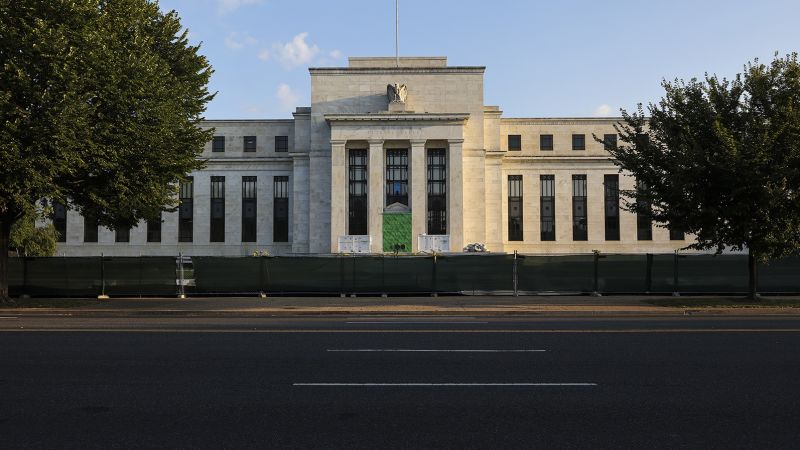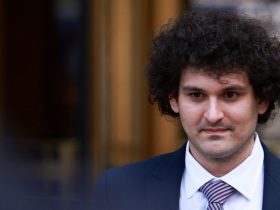A version of this story first appeared in CNN Business’ Before the Bell newsletter. Not a subscriber? You can sign up right here. You can listen to an audio version of the newsletter by clicking the same link.
The Federal Reserve has a complicated decision to make during its next policy meeting, which is only a few weeks away.
All Fed officials agree that inflation needs to be defeated in a timely fashion, but they disagree on whether the central bank has already done enough.
Some officials think the Fed must raise interest rates more to tame inflation, while others think the rate tightening that’s been done will continue to further ease rising prices. It takes around a year for the Fed’s actions to be felt across the economy.
San Francisco Fed President Mary Daly said last week that “if we continue to see a cooling labor market and inflation heading back to our target, we can hold interest rates steady and let the effects of policy continue to work.” Meanwhile, Fed Governor Michelle Bowman said recently that she continues “to expect that further rate increases will likely be needed to return inflation to 2% in a timely way.”
To put it simply, Fed officials are divided because the economy’s future is riddled with many uncertainties.
It’s just not clear whether inflation will slow further as employers continue to hire at a solid clip or whether the bond market’s sell-off will constrain the economy just enough to pull inflation down. Also, how much the resumption of student loan repayments this month will ultimately weigh on spending is unknown, given the Biden administration has recently approved some debt relief.
So, Fed officials are divided, but it doesn’t really matter. Divergent opinions at the Fed is simply a feature of the central bank during pivotal junctures such as right now.
“It generally should be seen as a good thing that they have different opinions. That’s arguably a design feature of the Committee — that there are varying views that get aired, otherwise there’s a risk of group-think,” wrote Michael Feroli, chief US economist at JPMorgan, in a statement to CNN.
Fed officials are still people, and as the saying goes, opinions are like bellybuttons in that everyone’s got one.
The Federal Open Market Committee, the Fed committee that sets monetary policy, has reached unanimous policy decisions nearly every meeting this entire rate-hiking cycle that began in March 2022.
“It’s also not that surprising that the decisions have been unanimous. The Fed started from so far behind the curve that catching up was an obvious decision. Now that we are getting closer to the end is when we see more differences open up,” Feroli said.
Fed officials in that committee with voting power have the option to dissent, but it’s only happened twice this cycle. The last dissent was from former Kansas City Fed President Esther George more than a year ago.
That’s when a division could matter: if multiple officials dissent. But that’s extremely unlikely, even right now.
“A dissent just means someone is violently opposed to the decision that the group is making. You have to have a very high degree of conviction to do that,” Ed Al-Hussainy, Columbia Threadneedle Investments senior interest rates and currency analyst, told CNN.
“Both sides have very valid arguments and one camp is trying to convince people in the other camp,” he said.
Al-Hussainy added that even if one official dissents, it “won’t mean much.” JPMorgan’s Feroli said that “historically more than one dissent was a signal of a heavily divided committee.”
“I think that’s probably still the case and I would be surprised if we saw more than one dissent in the near future,” Feroli added.
It’s also worth noting that voting members at the FOMC change at the start of each year.
In total, there are 12 voting members on the FOMC. Seven of those votes will always come from the members of the Board of Governors at the Fed, which includes Fed Chair Jerome Powell. The president of the New York Fed, currently John Williams, always votes at meetings. The remaining votes come from four of the other 11 regional Fed banks.
This year’s voters, which are Dallas Fed President Lorie Logan, Chicago Fed President Austan Goolsbee, Philadelphia Fed President Patrick Harker, and Minneapolis Fed President Neel Kashkari, will be rotated out next year.
Logan and Kashkari are considered “hawks,” or ones who back a tougher stance on fighting inflation, and the other two are “doves,” or ones who fret causing unnecessary economic damage through additional Fed tightening.
Next year’s voters are the presidents of the Fed banks in Cleveland, Richmond, Atlanta, and San Francisco. The Atlanta Fed’s Raphael Bostic and the San Francisco Fed’s Daly would be the two most dovish Fed presidents with voting power in 2024.
– CNN’s Elisabeth Buchwald contributed to this report.
The Federal Reserve may be in a quandry over interest rates, but it seems to have enough of an argument to continue to hold them steady.
US hiring accelerated last month, with employers adding a robust 336,000 jobs. That’s at odds with Fed officials’ goal of cooling the job market to bring inflation to the central bank’s 2% target and should mean that one last rate hike is coming at the Fed’s two-day policy meeting coming up in just a few weeks.
However, the recent sell-off in government bonds means that the US financial system will become more burdensome for American families and businesses, which could, itself, cool the economy.
The yield on the 30-year US Treasury bond rose above 5% this week for the first time since 2007, on the expectation that the Fed will keep rates higher for longer. Friday’s blockbuster jobs report pushed yields even higher.
US Treasuries are the benchmark used to price debt, so higher yields mean higher rates on everything from car loans to the cost of mergers and acquisitions. Raising rates even further could put Americans in an even tougher financial spot.
So the Fed has a tough decision to make: The bond-market rout could cool the economy enough for the Fed to hold rates steady. Or the Fed could view the job market’s resilience as a threat to inflation’s defeat, requiring another rate hike.
But there is also a strong case for a pause, and a majority of investors agrees.
By Friday afternoon, markets saw a roughly 89% chance that the Fed will decide to hold rate steady again at its October 31- November 1 meeting, according to the CME FedWatch Tool.
Here’s the case for another pause: Higher Treasury yields and tougher bank lending standards will continue to constrain the economy, taking more steam out of inflation, but rates might stay higher for long due to the resilience of some underlying inflationary pressures, particularly in the services sector.
Read our full coverage of the September jobs report here.
Monday: Fed officials Lorie Logan, Michael Barr and Phillip Jefferson deliver remarks.
Tuesday: Earnings from PepsiCo. The National Federation of Independent Business releases its Small Business Optimism Index for September. Fed officials Raphael Bostic, Christopher Waller, Neel Kashkari, and Mary Daly deliver remarks.
Wednesday: The US Labor Department releases its Producer Price Index for September. Fed officials Christopher Waller and Raphael Bostic deliver remarks. The Federal Reserve releases minutes from its September policy meeting.
Thursday: Earnings from Domino’s, Walgreens and Delta. The US Labor Department releases its Consumer Price Index for September. China’s National Bureau of Statistics releases September data on inflation and the country’s customs agency releases September data on trade flows.
Friday: The US Labor Department reports export and import prices in September. The University of Michigan releases a preliminary reading of consumer sentiment in October.
Read the full article here













Leave a Reply